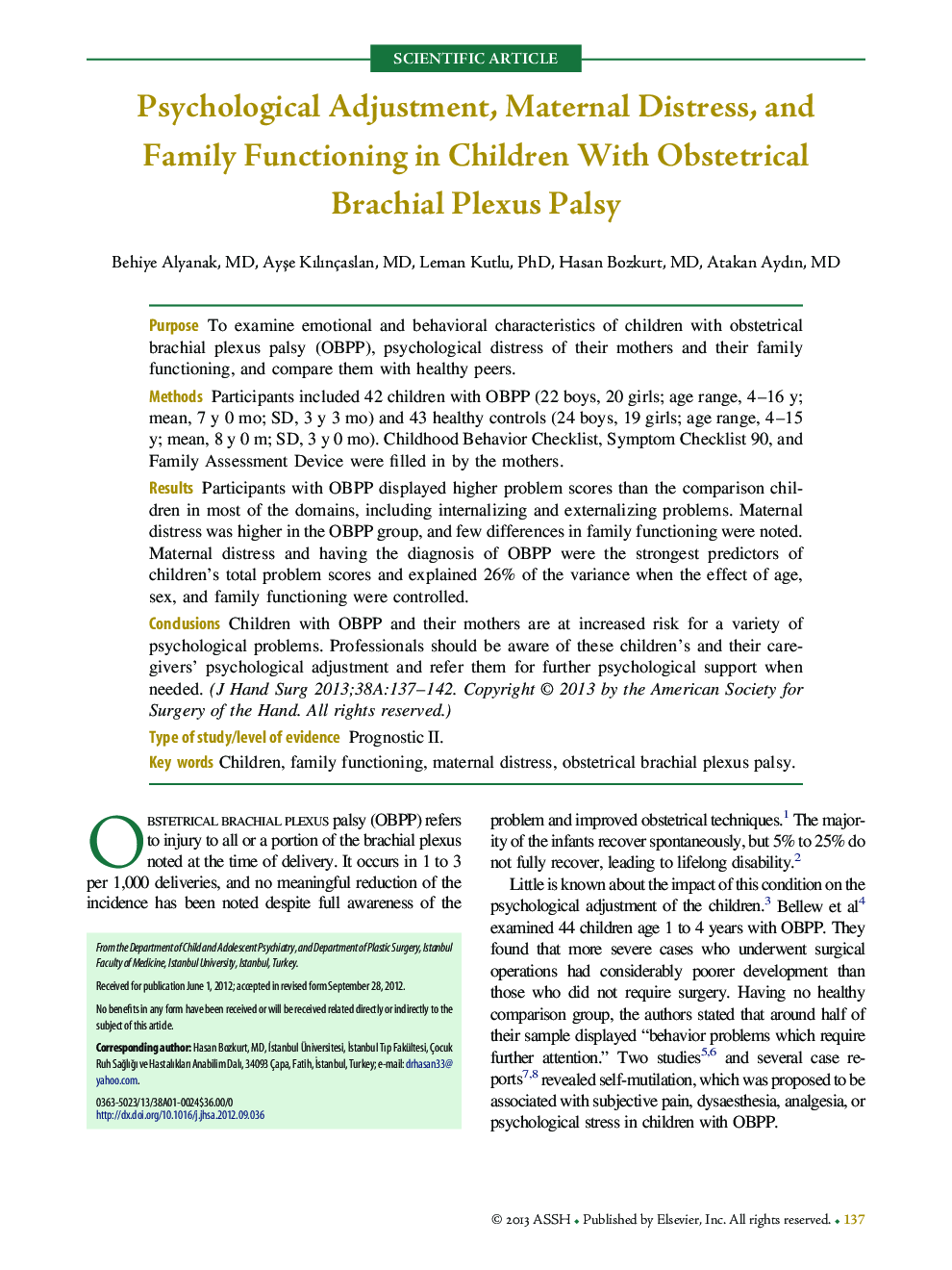| Article ID | Journal | Published Year | Pages | File Type |
|---|---|---|---|---|
| 4069686 | The Journal of Hand Surgery | 2013 | 6 Pages |
PurposeTo examine emotional and behavioral characteristics of children with obstetrical brachial plexus palsy (OBPP), psychological distress of their mothers and their family functioning, and compare them with healthy peers.MethodsParticipants included 42 children with OBPP (22 boys, 20 girls; age range, 4–16 y; mean, 7 y 0 mo; SD, 3 y 3 mo) and 43 healthy controls (24 boys, 19 girls; age range, 4–15 y; mean, 8 y 0 m; SD, 3 y 0 mo). Childhood Behavior Checklist, Symptom Checklist 90, and Family Assessment Device were filled in by the mothers.ResultsParticipants with OBPP displayed higher problem scores than the comparison children in most of the domains, including internalizing and externalizing problems. Maternal distress was higher in the OBPP group, and few differences in family functioning were noted. Maternal distress and having the diagnosis of OBPP were the strongest predictors of children's total problem scores and explained 26% of the variance when the effect of age, sex, and family functioning were controlled.ConclusionsChildren with OBPP and their mothers are at increased risk for a variety of psychological problems. Professionals should be aware of these children's and their caregivers' psychological adjustment and refer them for further psychological support when needed.Type of study/level of evidencePrognostic II.
